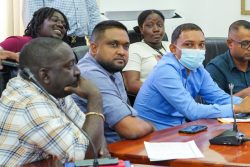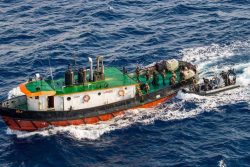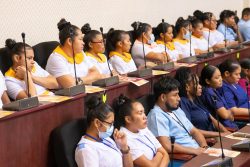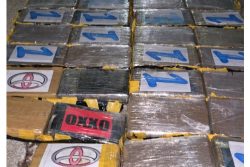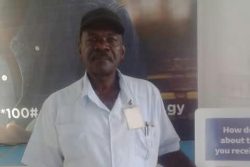As she turns four today, Varshanie Ramdass will finally hold the doll placed out of her reach on a wooden shelf in her Plastic City, Vreed-en-Hoop, West Coast Demerara home.
“Uncle, uncle, look I getting de dolly,” she said a few days ago bouncing up and down, pointing to the simple doll, barely able to contain her excitement. Her father, Krishna Ramdass, sitting in the one-room, scrap-wood and zinc structure they call home, looks after the newest addition to the family, two-month-old, Kishan.
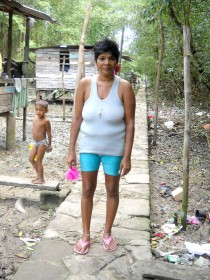
He, like the other residents of the squalid area, mud-filled and garbage strewn, is resigned to spending yet another Christmas in the perennially flooded, insect-infested mangrove flats of the community. It is Kishan’s first Christmas in the flats, Varshanie’s fourth and Ramdass says it is about his tenth, but he is not exactly sure. His wife and two other children will also spend Christmas there.
Being able to move from the squatter settlement is what the Ramdasses and others would like, but they cite some issues in getting land. Ramdass said he applied twice but never got a response as to whether it was successful or not. However, he said, he has been told that he has to go to the Ministry of Housing to pay $110,000 for a lot and that he could pay half of that down. Ramdass said that they have been told that those who cannot pay for the land will be given lots at Kuru Kuru on the Linden/Soesdyke Highway, but he pointed out that it is far from where the jobs are.
“Wha we gon do deh? You nah gat wuk deh,” he said.
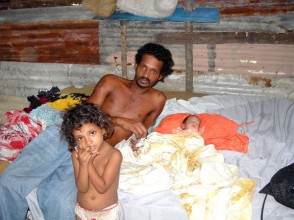
Krishna said he is trying to save up to pay for the land. He works as a mason but jobs are hard to come by. “Sometimes yuh wuk one month, next two month, yuh deh home,” he said. So recently he began working with a garbage disposal service. But while working one day, he sustained a cut and one of his legs began to swell and remained swollen. So for the moment Ramdass remains at home, caring for the children. “I glad if we move from here. It nah really healthy for the children,” he said, a statement that was echoed by other residents.
Christmas in Plastic City, so named because plastic was the main building material
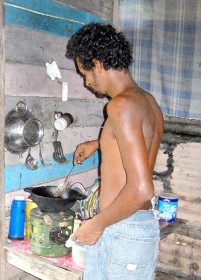
used in the original ‘houses’ there, is much like elsewhere in Guyana – but different too. The squatter settlement has no electricity or potable water or any other service, and residents say they cannot afford any place else, so they live there. Every day, candles will be lit at the Ramdass home because the smoke from the kerosene lamp is not good for the baby. For his second youngest child, Ramdass bought the doll for her birthday. He also bought her another doll and gave it to her for the season, but it is already damaged. He has also bought a few gifts for the other children.
“People like drink at the back here. Cook food and drink,” he said, adding that the music played is battery powered. All he expects for Christmas is some nice food, Ramdass said.
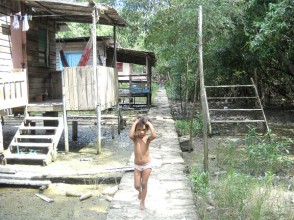
Over a dozen families live in leaking board and zinc shacks on the edge of Plastic City while others live in sturdier houses at the front. Back in July, Minister of Housing and Water Irfaan Ali had told this newspaper that his ministry has a “comprehensive plan” for Plastic City, and held several meetings with residents, but they have refused to move.
Ramdass said he would like to move out as soon as possible. While all he expects for Christmas is
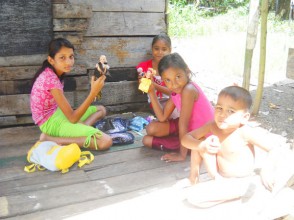
some nice food, he said he also wishes to “live many more and bless the children them.”

